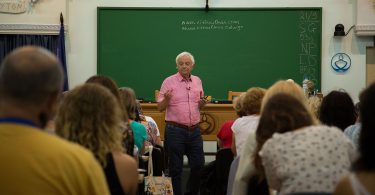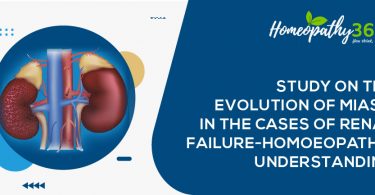
ABSTRACT
Atopic dermatitis is a common, often persistent skin disease that affects a large percentage of world’s population. It can occur at any age, most often affects infants and young children. Occasionally it may persist into adulthood or may rarely appear at any time. A 25 years old male was report with the complaint of atopic dermatitis. Based on the totality of symptoms Sulphur 200C was prescribed, which was found to be simillimum after repertorisation. Within days, gradual improvement was observed and her complaint and were completely relieved within days. This provides evidence about effectiveness of homoeopathic medicine.
KEYWORDS: homoeopathy, atopic
dermatitis, Sulphur, case report
ABBREVIATIONS: immunoglobulin
E (IgE), atopic dermatitis (AD)
INTRODUCTION
Atopic
dermatitis (AD) is a chronic, pruritic inflammatory skin condition that
typically affects the face (cheeks), neck, arms, and legs but usually spares
the groin and axillary region. And usually starts in early infancy, but also
affects a
substantial number of adults1,2,3,4. Atopic dermatitis is commonly
associated with elevated levels of immunoglobulin E (IgE)1,3. That
it is the first disease to present in a series of allergic diseases including
food allergy, asthma, and allergicrhinitis, in order—has given rise to the
“atopic march” theory, which suggests that Atopic dermatitis is part of a
progression that may lead to subsequent allergic disease at other epithelial
barrier surfaces1,2. Multiple factors can trigger or worsen
atopic
dermatitis including low humidity, seasonal allergies, cold weather. It is very
common in worldwide and increasing prevalence. It affects males
and females equally and account for 10-20%. The most common symptoms are dry,
itchy red skin. Itch is the hallmark of disease. Scratching and itching worsen
the skin inflammation. Itching is particular problem during sleep1,3.
CASE
REPORT
A male aged 25 years
reported with complaint of itching in the back of neck, burning, blackish
eruption since 5days.The complaint get worse at night and after bathing.
HISTORY OF PRESENTING ILLNESS
His complaint
started since 5 days. Itching get worse at night and after bathing, Due to his
complaint, sleep is disturbed.
PAST HISTORY
History of
atopic dermatitis in childhood treated with allopathy
FAMILY HISTORY
Father –Osteoarthritis
of knee
PHYSICAL GENERAL
Desire
for sweet
Appetite-increased
Digestion-normal
Stool-regular
Urine-normal
Sleep-disturbed
due to itching
Sweat –during
slight exertion
PHYSICAL EXAMINATION
Blood
pressure-110/70mm Hg, pulse-70/minutes, temperature-98.6°F
TREATMENT PROTOCOL
No other mode of
treatment was adopted. A single suitable remedy was prescribed based on the
totality of symptoms and repertorisation.
REMEDY SELECTION
Repertorisation was done using RADAR 10.0(kent repertory)7, considering symptoms itching in back of neck, eruption, burning aggravated night. After repertorisation, Sulphur covered 5 rubric; itching in back of neck, burning in night, desire sweet, sweat on least exertion with the score 11, followed by Sepia officinalis, Silicea terra, Staphysagria, Rhus toxicodendron, Graphites, etc.
First prescription: 14.08.2020 at 9.30am Sulphur 200C in pills was given followed by 7 days placebo
| Date | Change in symptomatology | Prescription |
| 21.08.2020 | Itching reduced Redness reduced Burning relieved | Placebo |
JUSTIFICATION OF REMEDY SELECTION AND REMEDY DIFFERENTIATION5,6
Selection of Sulphur was based on reportorial analysis and materia medica reference, considering the symptoms which include, itching, burning, worse washing, night. Burning is the one of the most important symptoms of Sulphur. Considering the generals, complete loss of appetite, great desire for sweet. The patient is dirty, filthy prone to skin affection5,6.
Sepia itching not relieved by scratching, worse in bend of elbow and knee. Ringworm like eruption every spring. Sweat from least motion. Feeling of goneness not relieved by eating. Also, the patient as a person does not resemble Silicea terra because the skin was not delicate, pale, waxy, eruption itch only during daytime and evening. Sweat at night, worse towards morning. Also, the patient as a person does not resemble
Staphysagria eczema of head, ear, face and body5,6. Thick scab, dry, itch violently, scratching changes location of itching.
Rhus toxicodendron, skin is red, swollen itching intense, burning eczematous eruption with tendency to scaly formation5,6.
DISCUSSION
The article which tries to unearth the evidence of homoeopathy in treating the disease of Skin. In this case, homoeopathic medicine were selected on the basis of individualisation and medicine was successful in treating atopic dermatitis that causes relief of symptoms of patient. A single suitable, Homoeopathic remedy was prescribed based on totality of symptom and repertorisation. Sulphur 200C was prescribed and, his complaint got better within a day. Homoeopathic medicine is beneficial in treating skin disease.
ACKNOWLEDGEMENT
I express my sincere gratitude to management and principal of Maria Homeopathic Medical college and Hospital, Thiruvattar, India for providing necessary facilities to carry out this work
BILIOGRAPHY
- Medicinenet.com. 2021. [online] Available at: <https://www.medicinenet.com/atopic_dermatitis/article.htm>
- Golwalla, A. and Golwalla, S., 2017. 25th ed. jaypee brothers.
- Emedicine.medscape.com. 2021. Atopic Dermatitis: Practice Essentials, Background, Pathophysiology. [online] Available at: <http://emedicine.medscape.com/article/1049085-overview>.
- Harrison. and Jameson, L., 2018. Harrison Principle of internal medicine. 20th ed. México D.F.: McGraw-Hill.
- Boericke, W. and Boericke, O., 2004. Pocket manual of homœpathicmateriamedica. New Delhi: Indian Books & Periodicals Publishers.
- Allen, H., 1999. Keynotes rearranged and classified with leading remedies of the materiamedica& bowel nosodes. 10th ed. B. Jain.
- RADAR Version 10.0
APPENDICES

Figure 1: Repertorisation sheet






